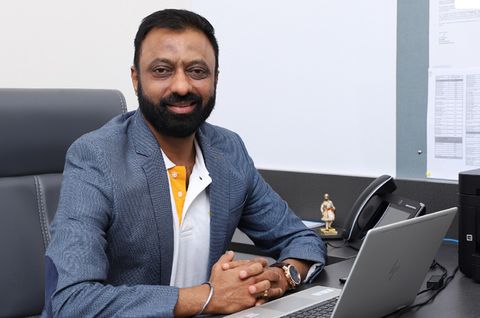Technology helping GCC states achieve food security

The agriculture industry in the Gulf Cooperation Council (GCC) countries faces unique challenges due to arid climates and limited natural resources. However, the GCC nations have embraced technology as a catalyst for localising their agriculture industry.
Use of the latest technology bolsters food safety efforts and increases productivity, while achieving food security objectives.
Here are some of the technological practices in transforming the agriculture industry in the GCC, paving the way for localisation and sustainable practices:
• Food safety efforts with innovative SaaS solutions: Ensuring food safety is a critical aspect of agriculture in the GCC. To address this, the industry has turned to innovative Software as a Service (SaaS) solutions. These technologies enable real-time monitoring of farming practices, soil quality, and pest control measures. By analysing data collected from farms, farmers can identify potential risks and take timely preventive actions, ensuring the production of safe and high-quality food. SaaS solutions also facilitate traceability, enabling efficient tracking of produce from farm to table.
• Increasing productivity: Advanced farming techniques such as hydroponics, vertical farming, and controlled-environment agriculture are being widely adopted. These methods optimise resource utilisation, reduce water consumption, and maximise crop yields. By harnessing technology, farmers can cultivate a diverse range of crops throughout the year, overcoming the limitations imposed by climate and geography. This not only boosts productivity but also reduces the region's reliance on food imports.
• Tech to achieve food security objectives: Food security is a primary concern for the GCC countries, given their heavy reliance on food imports. Technology plays a pivotal role in achieving self-sufficiency. Through the implementation of innovative irrigation systems, precision agriculture tools, and genetic modifications, farmers in the GCC can enhance crop yields and minimise losses caused by environmental factors. Moreover, technology enables vertical integration across the agricultural value chain, ensuring greater control over production and distribution, and ultimately leading to improved food security.
• Automation of inventory tracking and counting: Efficient supply chain management is vital for the agriculture industry in the GCC. Technology enables the automation of inventory tracking and counting processes, reducing human errors and improving efficiency. Automated systems monitor and manage inventories, providing real-time data on stock levels. This facilitates demand forecasting and ensures timely replenishment, leading to streamlined operations and reduced costs. With automation, farmers can maintain a seamless flow of agricultural products, ensuring their availability to meet local demands.
• Using sensors for precision and climate-smart farming: Sensors have revolutionised agriculture by enabling precision farming and climate-smart practices. These devices monitor and collect data on soil moisture, temperature, humidity, and nutrient levels. By analysing this data, farmers can make informed decisions regarding irrigation, fertilisation, and pest control, ensuring optimal growing conditions for crops. Precision farming maximises crop yields while minimising resource wastage, fostering sustainability and resilience in the face of challenging environmental conditions.
• Using drones for improved decision-making: Agricultural drones have emerged as indispensable tools for farmers. Equipped with high-resolution cameras and multispectral sensors, these drones capture detailed imagery of fields, providing valuable insights into crop health and growth patterns. Farmers can identify disease outbreaks, nutrient deficiencies, and irrigation problems promptly. With this information, they can make data-driven decisions, optimising crop management strategies and mitigating potential risks. Agricultural drones enhance efficiency, accuracy, and productivity, contributing to localised and sustainable agriculture practices.
* Using Artificial Intelligence and Machine Learning algorithms for predictability: By analysing vast amounts of agricultural data, including weather patterns, historical yields, and market trends, AI and ML algorithms offer valuable insights and predictions. Farmers can optimise resource allocation, make informed planting decisions, and forecast crop yields accurately. These technologies enhance the predictability and profitability of farming operations, empowering farmers to adapt to changing market dynamics and ensure sustainable growth.
* Using satellite imagery for yield estimation and crop health: Satellite imagery is a game-changer for agriculture in the GCC. By capturing high-resolution images of fields, satellites provide critical information on crop health, growth patterns, and yield estimation. This data assists farmers in optimizing resource allocation, identifying areas of improvement, and responding promptly to crop stress or disease outbreaks. Satellite imagery enables proactive decision-making, ensuring efficient resource utilisation and maximizing crop productivity.
By embracing technology, the GCC nations are making efforts to create a resilient and self-sufficient agriculture sector that can overcome the challenges posed by arid climates and limited resources.
With continued focus on technological advancements, the future of the agriculture industry in the GCC looks more sustainable and a promising localised approach to feeding the region.
Source: https://www.tradearabia.com/news/REAL_411993.html


